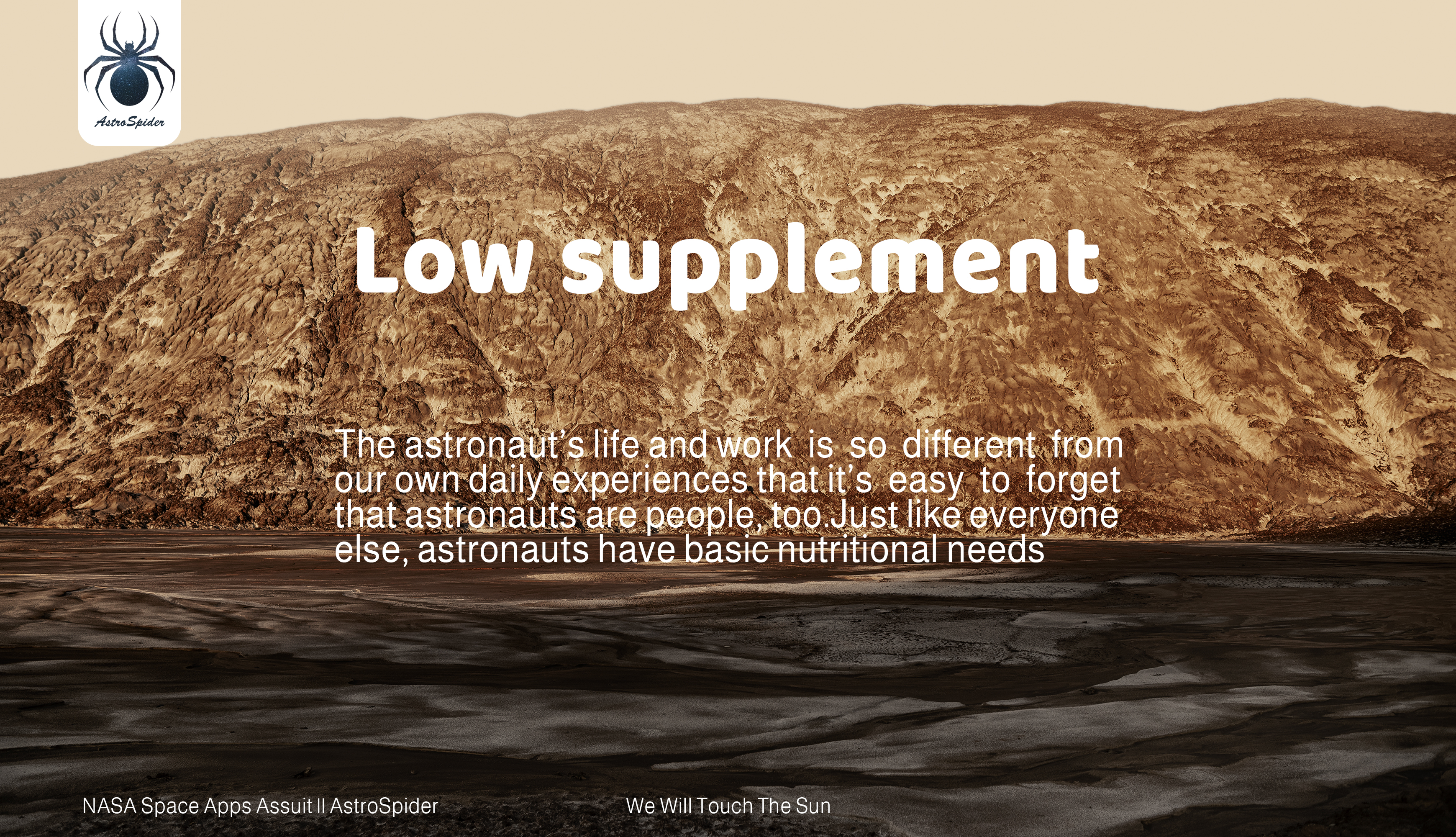
Low supplement
The lack of supplies and food represents an important and big challenge. It is assumed that the space flight vehicles contain the appropriate food throughout the flight period. The image of the challenge is formed in long-term flights that take 3 years, as in the Mars flights, which in turn makes it difficult to have all this huge amount of food on the spacecraft that is being supplied. It is now available in missions that take from 6 months to 1 year. Providing 3 years of safe packaged food with appropriate, acceptable and varied nutritional content is a major challenge. The potential health effects of losing nutritional value in space flights include:
1) decrease in crew performance (loss of stamina, cognition);
2) Crew disease (loss of bone and muscle mass, immune function, cardiovascular performance, gastrointestinal function, severe dehydration, nausea, diarrhea, endocrine function, eye health, mental health, and ability to mitigate oxidative damage);
3) long-term health effects (cancer, bone, heart, etc.),
4) Interactions with other systems/counteractions (eg, drug/nutrient interactions, environmental influences on oxidative stress, exercise-induced changes in energy requirements.).
While we know the requirements for reducing nutrient deficiencies on Earth, we don't know the nutrients and nutritional requirements to ward off diseases such as cancer, and cardiovascular disease.. Compared to spaceflight, we don't know the nutritional requirements for optimal crew health or to mitigate the harmful impact of space travel.
In addition, environmental, nutritional and psychological change factors greatly affect the risk of developing kidney stones, which is clearly shown with those crew members who have increased risks before traveling in space flights and with the challenges they are exposed to in space leading to calcium deficiency, osteoporosis and hypokalemia. Urinary production and increased sodium, so the result of all these challenges is the formation of kidney stones
The solution to this challenge is represented in what studies and research seek to provide quantities of food or food that suffice at least 5 years, a validity period of up to this period without losing its nutritional value or spoiling it due to various environmental factors. Among the solutions that NASA seeks to provide food containing All of these ingredients through the establishment of agricultural units.
These units provide the appropriate or appropriate conditions for plant growth in space, from suitable light free from radiation, and a good system for irrigating these plants in space ... and the cultivation of crops that provide nutritional value for the flight crew and are renewable, acceptable and diverse. Studies and research are still working to support and invest in this challenge, which will be a great move in space travel